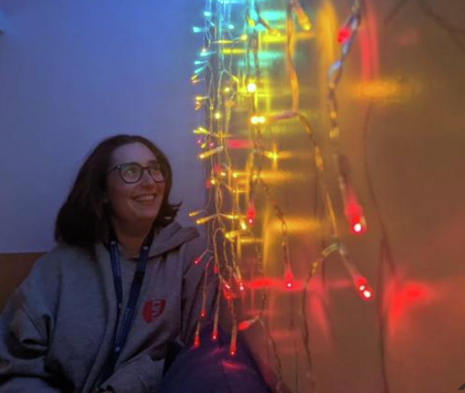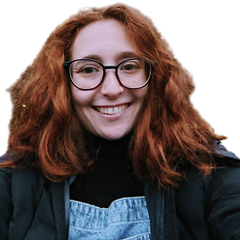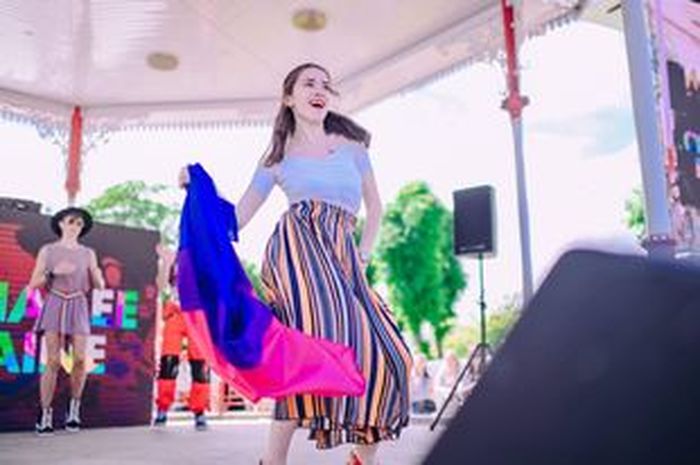On coming out as bisexual and why it took me so long
Features staff writer Daisy Margolis investigates the denial of bisexuality in popular culture and its impact on her own coming out

Growing up in the early 2000s, I was raised in heteronormative bliss. I was accustomed to the playground kiss-chases, in which boys would run around trying to kiss the girls, as well as the extreme fangirling over Zac Efron in High School Musical. It wasn’t until I watched Katy Perry’s ‘I Kissed a Girl’ with my childhood friend, secretly crowded around the family’s computer, that I was introduced to the idea of kissing someone of your own gender. Whispering over Katy Perry’s catchy song, my friend uttered two words that I had only previously heard in passing or over hushed conversations: gay and lesbian. What did these words mean? Could a man really love another man? Why was it seen as such a bad thing? Was I a lesbian? Although bisexuality was yet to be added to my vocabulary, these two words, uttered to me during a routine after-school play-date, changed my whole world forever.
As well as crushing over the Sprouse twins and the Jonas Brothers, from this moment onwards I began to acknowledge my celebrity crushes on girls like Selena Gomez and the three mermaids from H2O: Just Add Water. Whilst I was no longer limited to a heterosexual way of thinking, the more I learnt about and understood these two words, the more out of place and confused I felt. Although I was beginning to discover my attraction towards women, I still couldn’t shrug the feelings I had towards the opposite gender. How could I be a lesbian when I still got the hots for a shirtless Justin Timberlake? It wasn’t until 2011, when a little TV show called Glee graced our screens, that I was finally introduced to a word that described the way I was feeling. Little did I know that this word would come to be the source of many of my troubles for almost a decade.
“As bisexuals, we inhabit a lonely space outside of the main heterosexual and homosexual groups, unsure of if and where we fit in.”
As a teenager, I was an avid fan of the hit television show Glee (2009), which was praised for its portrayal of LGBT characters. I remember watching an episode in which the character Blaine questions his homosexuality, thinking he might be bisexual. Having kissed Rachel at the end of the episode and realised he didn’t enjoy it, Blaine re-confirmed his homosexuality, suggesting that his bisexual questioning was simply an experimentation and a transition to help him find his true sexual orientation.
Finding a word that so perfectly described what I had been feeling should have been a life-affirming moment that catapulted me into a community of acceptance and camaraderie. Instead, this word came to represent a temporary and transitory phase through which individuals passed on their way to heterosexuality or homosexuality. As Carrie Bradshaw put it in Sex and the City: “I’m not even sure bisexuality exists. I think it’s just a layover on the way to gay town.” Seeing that Blaine’s bisexuality was merely a phase of which he promptly grew out, I was quick to deny my own homosexual inclinations as a minor glitch, and subsequently confirmed my heterosexuality.
“How do you come out of a closet you never knew you were in?”
Growing up in a society that continuously denies bisexual existence, it was extremely hard for me to understand and believe that there was such a thing as being bisexual, let alone comprehend that I might be one such individual. Throughout my teenage years and early twenties, I developed an internalised biphobia that heavily contributed to my deteriorating mental health, as I juggled with the decision to remain invisible or come out and be subjected to a crude system of dichotomous sexual categorisation. Neither option gave me much hope. I constantly asked myself, why was this happening to me? Why am I attracted to men and women? Why can’t I just pick a side? Does bisexuality really exist? Am I just denying my homosexuality?
As I look back on all of these negative thoughts and feelings that occupied my brain 24/7 for nearly 22 years, it’s no wonder it took me so long to understand and confirm my bisexuality, let alone come out to my family and friends. Coming out of the closet is always hard, but how do you come out of a closet you never knew you were in?
As bisexuals, we inhabit a lonely space outside of the main heterosexual and homosexual groups, unsure of if and where we fit in. Seeing my erasure from films, TV shows and popular media only helped to reinforce my rampant internalised biphobia. It wasn’t until I actively sought out positive representation, which affirmed my sexual orientation, that I was finally able to overcome 10 years of self-bisexual berating. From Rosa Diaz’s friends and co-workers accepting her bisexuality on Brooklyn Nine-Nine, to Robyn Ochs’ collection of autobiographical accounts of bisexuality from a wide variety of people from different countries, ethnicities and genders in her book Getting Bi, and Audrey Plaza’s nonchalant bisexual coming out over twitter, I saw a reality in which I could be out and proud of my bisexuality, as well as being accepted by my friends and loved ones for my sexual orientation.
Whilst my coming out at the grand old age of 22 was by no means smooth sailing, with everyone leaping to my side in show of support and acceptance, finding examples in which bisexuality existed as a positive and conclusive reality allowed me to finally accept my sexuality for what it was; I liked girls and guys and everything in-between and I was finally okay with that.
 News / Deborah Prentice overtaken as highest-paid Russell Group VC2 February 2026
News / Deborah Prentice overtaken as highest-paid Russell Group VC2 February 2026 Fashion / A guide to Cambridge’s second-hand scene2 February 2026
Fashion / A guide to Cambridge’s second-hand scene2 February 2026 News / Downing Bar dodges college takeover31 January 2026
News / Downing Bar dodges college takeover31 January 2026 Comment / College rivalry should not become college snobbery30 January 2026
Comment / College rivalry should not become college snobbery30 January 2026 Lifestyle / Which Cambridge eatery are you?1 February 2026
Lifestyle / Which Cambridge eatery are you?1 February 2026










